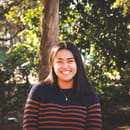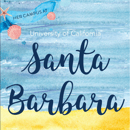Since I did not live with my siblings, Disney shows were my only source of information for what to expect as a teenager. That included believing that high school was actually full of musical numbers. I also believed that when I reached the age of thirteen, there would be a chance that I would discover I was actually a mermaid.Image via Giphy
A show that defined much of my childhood was Lizzie McGuire. There was something about the protagonist of the show, played by Hilary Duff, that left a mark on me. Her character was the person I knew I wanted to grow up to be. I knew the obvious differences between her and I. She was a blonde, blue-eyed, white girl. I was not, but that did not stop me from trying to be like her.
In order to complete the “Lizzie look,” I started out small: I cut my hair up to my shoulder. I’d beg my mom to let me crimp my hair so it would look just like Lizzie’s, but she never let me. Then there were big changes that I began to make, all to resemble my favorite character. For starters, I started telling my friends and family to call me Lizzie. Some of my friends actually did and it followed me up until my teenage years. I then began to beg my mother to let me dye my hair blonde, another request she refused to fulfill. There were times when I tried dressing like the characters on the show. I tried to emulate McGuire’s incredible fashion sense, but it just wouldn’t work out for me. There was a big difference between my body shape and Hillary Duff’s. I did not fully comprehend that as a child and blamed myself for not looking a certain way. This stuck with me throughout my entire childhood, believing that because I did not achieve the “Lizzie McGuire look” I would never have a life as “cool” as hers.
The lack of representation on Disney led to many questions about myself, all at a very young age. I was sure that because of the way I looked I could never achieve a made-up version of what I perceived to be beautiful. Of course, by growing up I was able to step away from this fixed mindset. I learned about different versions of beauty that I felt that I belonged in. Media should create a space for inclusivity, especially in children’s shows. These shows are for much more than just entertainment; they are spaces in which kids look to see if they can spot someone who looks like them. They introduce children to what they may want to be in the future. This is why representation matters.



